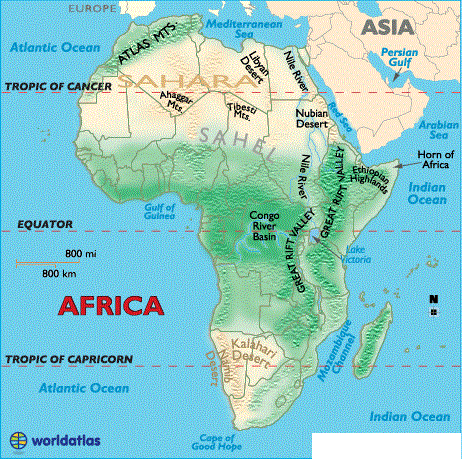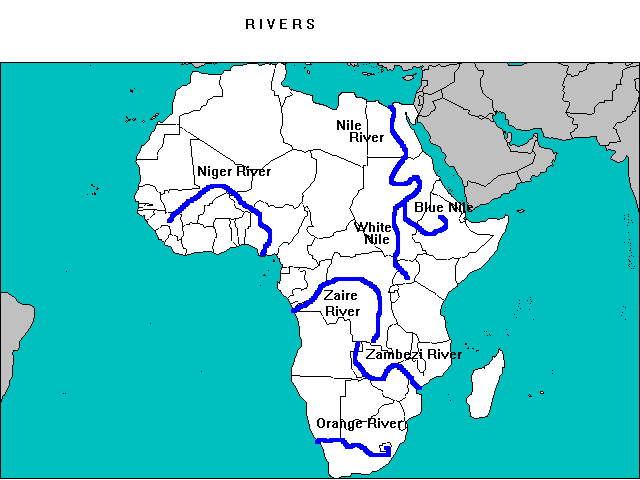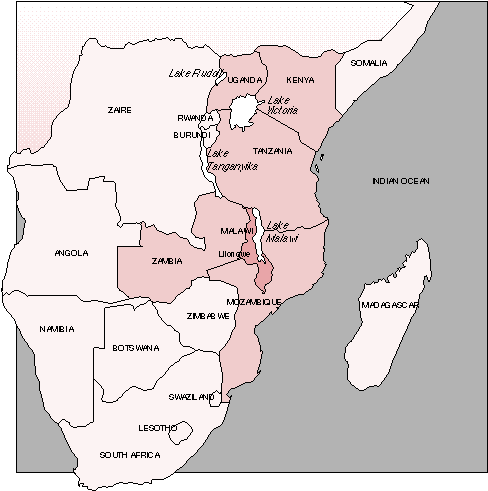-
Chapter 4: AFRICA
Introduction
Atlas mountain range is the only
mountain range in Africa. It is to the north. Sahara, Namib,
Lubian, Libyan and Kalahari Desert are present in Africa. Chad,
Sudan and Congo basin are present in the central region.

Fig 1: Africa
It lies mostly in the northern
hemisphere. But only continent throughwhich both the tropic
lines and the equator pass through.
Rivers and Lakes
Nile river is the longest river.
It is the lifeline of Egypt. Nile originates at lake Victoria
and empties into the Mediterranean sea.
Lake Victoria is at the border
of Uganda, Kenya and Tanzania.

Fig 2: Important rivers
Lake Tanganyika is between Congo,
Zambia, Burandi and Tanzania and Lake Malawi is between
Malawi, Tanzania and Mozambique.
Lake Victoria, the second largest fresh water
lake in the world by area. It is the largest tropical lake in the
world.
Lake Tanganyika, the world's second largest
fresh water lake by volume and depth. It is the worlds longest
freshwater lake.
Collectively, they contain about 25% of the
planet's unfrozen surface fresh water.
Islands between Africa and Latin
America are all British overseas territories.

Fig 2: Great lakes of Africa
Economy
Cultivable lands are three times more than those currently under
cultivation.
Low productivity and subsistence
farming goes on in Africa and most of the land is un-irrigated.
Also there is low access to
fertilizer and no awareness of soil conservation. Cocoa is the
most exported agro product comprising 70% of total exports.
Central African region has 50% of
the water resources but only 20% of the population.
Foreign investment led to expulsion of local people. There were instances of land grabbing.
Chapter Review
Score more than 80% marks and move ahead else stay back and read again!